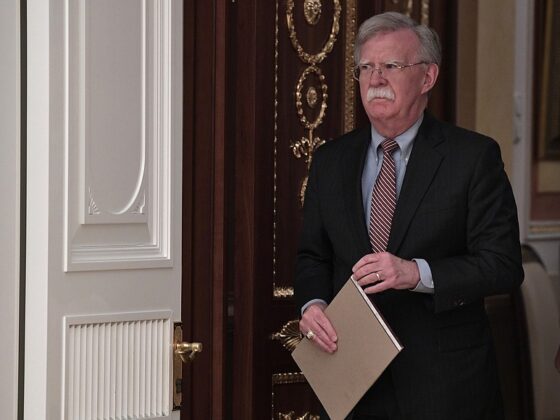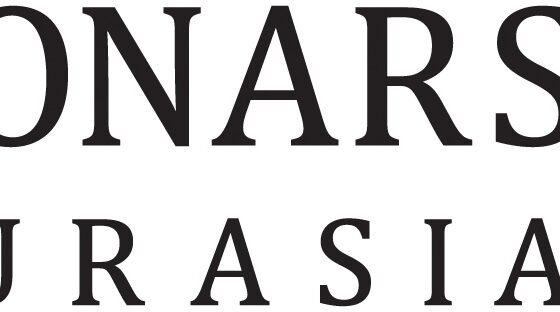(PONARS EURASIA Policy Memo) Nicolás Maduro has managed to contain a “military-backed challenge” from interim National Assembly President Juan Guaidó in April, but his grip on power remains tenuous given the historic economic crisis his country faces. Oil production, the backbone of its economy, has collapsed from 2.4 million barrels per day in 2013 to less than 1 million barrels today. Despite the wide-eyed promise that first accompanied new financial endowments from China and Russia after the 2008 financial crisis, they proved insufficient to adequately repair Venezuela’s infrastructure and catalyze its oil production. Today, China and Russia are instead “biding their equatorial time” in the South American country, hoping eventually to benefit from a refurbishing of Venezuela’s national patrimony.
Chinese and Russian investments in Venezuela thus share a long-term horizon. However, these two creditors have distinct foreign policy aims, with Russia more willing to challenge the United States geopolitically. To some extent, their divergent approaches reflect their respective roles within the international system. In many ways, China aims to project an image of being a defender of the status quo of the global economic system, while Russia has overtly aimed to upend it.
Covering Up the Mismanagement of National Patrimony
A two-hundred-year-old golden, bleached sundial anchors the center of El Venezolano, one of Caracas’ oldest public squares. The equatorial sun clock, constructed in 1803 by German scientist and scholar Alexander von Humboldt, was considered one of the most accurate in the globe given its unique location on the equator. Recognizing the importance of this national patrimony, the Venezuelan government moved it from the corner to the center of the plaza during the 1960s, though it was ostensibly reinstalled incorrectly. Today, Venezuelan scholars estimate the sun clock’s gauge is faulty, miscalculating the time by nearly one hour. Rather than fixing the problem, President Hugo Chávez instead built an adjoining red, metallic obelisk celebrating the 2010 bicentennial of Simon Bolivar’s independence revolution. Towering over the aged timepiece, the Bolivarian obelisk casts a shadow over the historic sun clock, further impeding its operation.
Reminiscent of this public square endowment is Venezuela’s investment in oil, another national patrimony. After succeeding Chávez in the prelude to the 2014 commodity downturn, Nicolás Maduro massively expanded the state balance sheet to obscure the economy’s growing dislocations. However, Maduro could not revive Venezuela’s oil economy.
Enter China and Russia
While the United States has pushed for immediate regime change in Venezuela, Russia and China have preferred, in the short term, to help Maduro resist a political transition. Russia in particular has helped Venezuela circumvent U.S. oil sanctions, provided security cooperation, and spearheaded negotiations in the international community to favor the official party’s quest for longer-term political control. With such an outcome, China and Russia would be able to protect their oil and commercial interests in the country, which by now are larger than those held by the United States. However, their strategies in the context of Venezuela’s economic collapse and political crisis also differ from each other in some important ways, with China being more willing to hedge its political and economic risk.
China in a Creditor Trap
During its miracle growth years, China’s economy greatly benefited from global trade and investment flows, and today, the Asian titan has placed them at the center of its flagship foreign economic policy program, the Belt and Road Initiative (BRI). China’s policy banks are charged by its government to help finance infrastructure, foreign direct investment, and international trade, in order to stimulate growth and ultimately China’s international economic ties.
China has banked its international reputation on the success of such development strategies, increasing its sensitivity to failed state-to-state investments. While many U.S. practitioners have suggested that China’s foreign investment reflects the pernicious pattern of debt-trap diplomacy, China was entangled in a creditor trap more than Venezuela was captured in a debt trap. Rather than using its financial offerings to create an unsustainable debt spiral to gain cheap strategic assets, Chinese policy banks have been lending defensively to Venezuela to keep the country afloat so it could repay its debts.
China’s policy banks have steadily unwound their financial links over the last half- decade amid President Maduro’s economic mismanagement, the state oil company’s collapse, and mounting investment failures, ranging from a home appliance factory to a high-speed railway. At its peak, between 2010 and 2013, Venezuela accounted for an average of 64 percent of China’s new approved lines of credit to Latin America. But from 2014 to 2017, Venezuela represented 18 percent of China’s total new regional credit lines.
With an eye on its regional reputation, China has been willing to extend some temporary debt relief and new loans to Venezuela. A complete cessation of financing was not an option. However, with indebtedness concerns mounting across the globe from Ecuador to Pakistan, China negotiated a two-year moratorium on Venezuela’s state-to-state debt in 2016, and extended new funds into Chinese joint-ventures to boost oil production and recover its outstanding oil collateral under its state-to-state loans.
China thus has to manage its soft power optics in developing regions like Latin America that were targets of Chinese infrastructure-building but also tied historically to the United States. China’s political influence in Venezuela had already suffered a marked deterioration, with more than half of the population deeming China “untrustworthy” in 2016, compared to a mere third in 2012.
Beijing has also attempted to brandish its “non-intervention” image by dealing with governments from across the political spectrum in Latin America. Chinese leaders had courted Venezuela’s opposition leaders during both the 2012 presidential and the 2015 parliamentary elections, and also largely stayed on the sidelines during the recent political crisis. China sent humanitarian aid to the Maduro regime, but also refrained from absorbing the Venezuelan oil that was diverted from US-based Citgo after the Trump administration’s January 2019 sanctions (India and Singapore were less compliant).
By hedging politically, China could foster its long-term commercial interests beyond the current crisis. It could also avoid the perception of being a defender of autocracy in a largely democratic region that had become increasingly critical of the Maduro regime. Eleven out of fourteen Lima Group nations, charged with finding a peaceful exit from the crisis, had supported Guaidó’s bid to become Venezuela’s legitimate leader. In turn, Guaidó has recognized China’s discrete overtures, saying its “support will be very important in boosting our country’s economy and future development.”
Russia: Speaking Loudly while Carrying a Shrinking Stick
Compared to China’s hedging strategy, Russia has been more willing to intervene politically in Venezuela. Although it shares China’s long-term commercial horizon, it has prioritized its geopolitical goals, including its desire to challenge U.S. hemispheric power and upend what it perceives to be an unfair and Western-dominated international system. By openly backing the Maduro regime, Moscow has shown its anti-U.S. meddling stance, condemning “the cynical, overt interference in the internal affairs of a sovereign state.”
During the initial stages of the Maduro-Guaidó standoff, Russia could thwart U.S. geopolitical interests on multiple dimensions politically, militarily, and financially. The political cornerstone of the Russia-Venezuelan relationship had been military ties, with Venezuela buying more than $4 billion in Russian arms and military equipment. More recently, Venezuela’s military, an ongoing supporter of the Maduro regime, has relied on Russia for military equipment—circumventing U.S. sanctions. More broadly, Russia also helped Venezuela avoid international sanctions by facilitating gold transport and sales to Uganda, the United Arab Emirates, and Turkey.
Apart from these actions, Russia also flubbed its nose at Washington’s hard line stance in Venezuela by sending two air force planes with one hundred military “personnel” during a national blackout in March. Despite the Trump administration’s warnings during the time that “all options [were] on the table,” President Vladimir Putin showed that the Russian military could freely enter Venezuela to support Maduro.
Beyond these military ties, Russia also employed its state-owned enterprise, Rosneft, as a geopolitical instrument to support the Maduro regime. Beginning in 2015, as China grew more cautious and concerned about its financial exposure in Venezuela, Rosneft provided about $6.5 billion in new funds to Venezuela’s state-owned oil company, PdVSA. In exchange, PdVSA provided 49.9 percent of its total shares from its U.S. subsidiary, Citgo, as collateral to Rosneft to guarantee future payments. Furthermore, Rosneft has increased its equity stake in the Orinoco’s heavy oil belt joint venture and has also received access to the largest gas reserves in Venezuela.
Rosneft has also benefited from the ongoing political stalemate in Venezuela. On the one hand, it has eased Maduro’s ability to bypass U.S. sanctions by helping PdVSA sell displaced exports to Europe and Asia. On the other hand, it has profited from the net reduction in oil supply due to both Venezuelan and Iranian sanctions. Russia has also received preferred borrower status on oil repayments, even relative to Venezuela’s arrears to Chinese creditors. Lofty investments in Venezuelan oil fields may also pay future dividends.
However, eight months into the political stalemate, Russia is finding it more difficult to balance its geopolitical and commercial ambitions. Facing mounting financial arrears, vulnerable supply chains, U.S. court battles over Citgo shares used as loan collateral, and U.S. sanctions on the Rosneft CEO, there are limits to how far Rosneft can extend its financial exposure in Venezuela. Like China, Russia’s largest oil producer has reportedly unwound its financial ties to Venezuela, with only $1.8 billion outstanding today.
Russia thus appears to be counterbalancing its tough geopolitical rhetoric with a softer push supporting negotiations, including the recent secret talks in June between the Maduro regime and the democratic opposition movement in Norway. Russia’s support of Maduro rests on the assumption that the country needs a change of course—especially in economic policy—just one that neither is fully guided by Washington nor jeopardizes Russia’s influence over the Venezuela military. This explains why, once made public later this summer, Russia vocally supported the secret talks between Maduro and Guaidó seeking a negotiated democratic and electoral solution to the current crisis.
More Flexibility Likely over Time
Similar to China’s tepid support for the status quo in Venezuela, Moscow likely senses that Maduro’s political tenure is limited due to the oil industry’s collapse, the humanitarian crisis, and the international condemnation against his autocratic rule. For both countries, given their large stakes in Venezuela’s oil and gas industries, their long-term commercial interests are dependent on economic, political, and social stabilization. Despite their role in prolonging the political stalemate in Venezuela, both China and Russia are likely to become more flexible over time, as they jockey for long-term strategic collaboration in a country that is home to the world’s largest oil reserves.
Stephen B. Kaplan is Associate Professor of Political Science and International Affairs at the George Washington University and a Global Fellow at the Wilson Center in Washington, D.C.
[PDF]
Homepage image credit.











